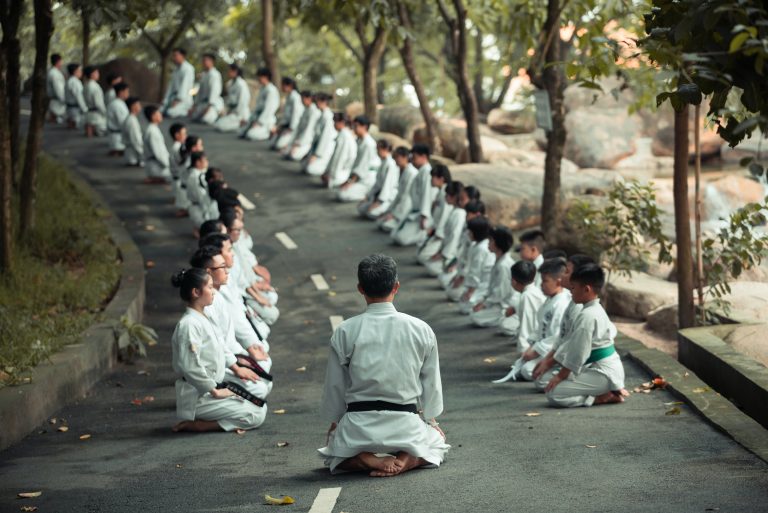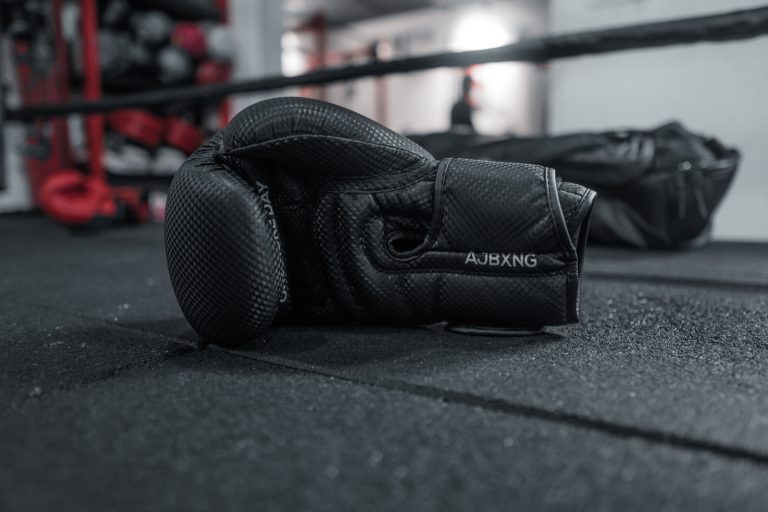Karate as Martial Arts and Meditation
Karate is a Japanese martial art that emphasizes self-defense, physical conditioning, and mental discipline. It involves a combination of punches, kicks, strikes and blocks, and incorporates various forms of meditation, such as visualization and breathing exercises. In this blog post, we will explore the relationship between karate as a martial art and meditation.
The Physical Benefits of Karate
Karate training involves intense physical exercise that helps individuals build and maintain strong, flexible bodies. The techniques used in karate, such as kicks and punches, build strength and improve coordination. Additionally, the fast-paced movements used in karate training help to increase cardiovascular fitness, which can have a positive effect on overall health.
The Mental Benefits of Karate
Karate also has significant mental benefits that are derived from its meditative components. Meditation is a key aspect of karate, as it helps individuals to focus their minds and develop better concentration. This, in turn, can aid in reducing stress levels and improving overall mental wellbeing.
Moreover, karate helps to promote self-confidence and self-discipline, which are essential traits that can be applied to all aspects of life. Through training, individuals learn to approach challenging situations with a calm and clear mind, allowing them to make more informed decisions and act with greater control.
The Importance of Meditation in Karate
Meditation is an integral part of karate training, and it is used to develop and hone mental discipline. Meditation helps individuals to focus on their breath, body, and mind, cultivating a state of mental clarity that enables them to perform at their best. Meditation also helps to develop mental toughness, which can be an asset in many areas of life.
The Different Types of Meditation in Karate
There are several different forms of meditation that are commonly used in karate. Firstly, there is Zazen, which involves sitting meditation and focuses on clearing the mind of distractions. This type of meditation is used to cultivate awareness and develop better concentration.
Secondly, there is Kinhin, which is walking meditation. Kinhin is often used to complement Zazen, as it helps to improve circulation, loosen the muscles, and change mental focus.
Lastly, there is breathing meditation, which is a powerful tool for controlling the breath and calming the mind. Breathing meditation helps individuals to develop greater control over their thoughts and emotions, which can aid in reducing stress levels and improving overall mental wellbeing.
In Conclusion
Karate is a martial art that offers a wide range of physical and mental benefits, including improved cardiovascular fitness, strength, coordination, self-confidence, and mental discipline. The meditative components of karate are essential to developing these attributes, as they help individuals to focus their minds, develop better concentration, and cultivate mental toughness. Whether you’re looking to improve your physical fitness or enhance your mental wellbeing, karate can be a highly effective tool for achieving your goals.
The Most Frequently Asked Questions about Karate as Martial Arts and Meditation
When it comes to martial arts, karate is one of the most popular styles around the world. Besides its effectiveness in combat situations, many people also turn to karate for its spiritual and meditative benefits. Here are some of the most frequently asked questions about karate as a martial art and meditation form.
What is karate?
Karate is a martial art that originated in Okinawa, Japan, in the early 1900s. It is a system of self-defense that involves striking, kicking, blocking, and grappling techniques. Karate practitioners also learn to focus and develop their strength, speed, power, and balance. There are many different styles of karate, such as Shotokan, Goju-ryu, Shito-ryu, and Wado-ryu.
What is the difference between karate and other martial arts?
Karate focuses more on striking techniques, such as punches and kicks, whereas other martial arts, such as Judo and Aikido, focus on grappling and throwing techniques. Karate also places a strong emphasis on developing mental and spiritual discipline through meditation and training.
How can karate help with meditation and mindfulness?
Karate can help people develop meditation and mindfulness skills in many ways. First, the practice of kata, or a set of prearranged movements performed solo, can help people focus and clear their minds. The techniques involved in kata also require precise movements and control, which can help develop a heightened sense of awareness and mindfulness. Additionally, karate teaches practitioners to control their breathing and remain focused in stressful situations, which are also key components of meditation and mindfulness.
What are the health benefits of practicing karate?
Practicing karate can have many physical and mental health benefits. Physically, it can improve cardiovascular health, strength, and flexibility. It can also help improve coordination and balance, which can be especially beneficial for older adults. Mentally, karate can help reduce stress, anxiety, and depression. It can also promote self-discipline, self-esteem, and self-confidence.
Is karate safe for children to practice?
Yes, karate is generally safe for children to practice, especially when taught by qualified instructors. The practice of karate can help children develop physical coordination, strength, and self-confidence. It can also teach them important life skills, such as respect, discipline, and self-control. However, it is important for parents to choose a reputable school with experienced instructors who prioritize safety.
Do I need to be physically fit to start practicing karate?
No, you do not need to be physically fit to start practicing karate. In fact, karate can be a great way to improve your physical fitness. Many schools offer beginner classes that are designed to help people of all fitness levels get started. Over time, as you continue to practice karate, you will likely see improvements in your strength, endurance, and flexibility.
How often should I practice karate?
The frequency of your karate practice will depend on your goals, schedule, and fitness level. Ideally, you should aim to practice at least 2-3 times per week to see significant improvements. However, some people choose to practice every day, while others only practice once a week. It’s important to find a practice schedule that works for you and allows you to make progress towards your goals.
How long does it take to become proficient in karate?
The amount of time it takes to become proficient in karate can vary depending on many factors, such as your natural abilities, practice schedule, and level of dedication. On average, it can take several years of consistent practice to become proficient in the basic techniques and earn a black belt. However, it’s important to remember that karate is a lifelong journey, and there is always something new to learn and improve upon.
What should I look for in a karate school or instructor?
When choosing a karate school or instructor, it’s important to research and visit different schools to find one that is right for you. Consider the experience and qualifications of the instructor, as well as the style of karate offered at the school. Look for a school that emphasizes safety and has a welcoming environment that encourages learning and growth. Additionally, be sure to ask about the credentials and experience of any instructor you are considering.
Conclusion
Karate is an excellent martial art that can provide many benefits for people of all ages and fitness levels. It’s a great way to improve physical and mental health while learning valuable self-defense skills. Additionally, the practice of karate can help develop mindfulness and meditation skills that can be applied to all areas of life. If you’re interested in trying karate, find a reputable school or instructor and get started on your journey today.
Inhaltsverzeichnis






